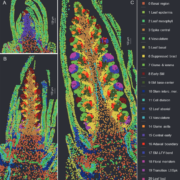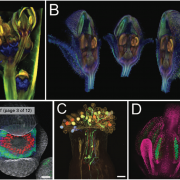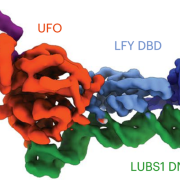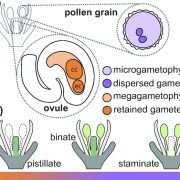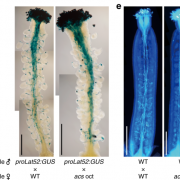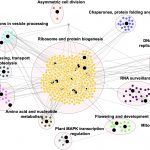Nurse cell–derived small RNAs define paternal epigenetic inheritance in Arabidopsis (Science)
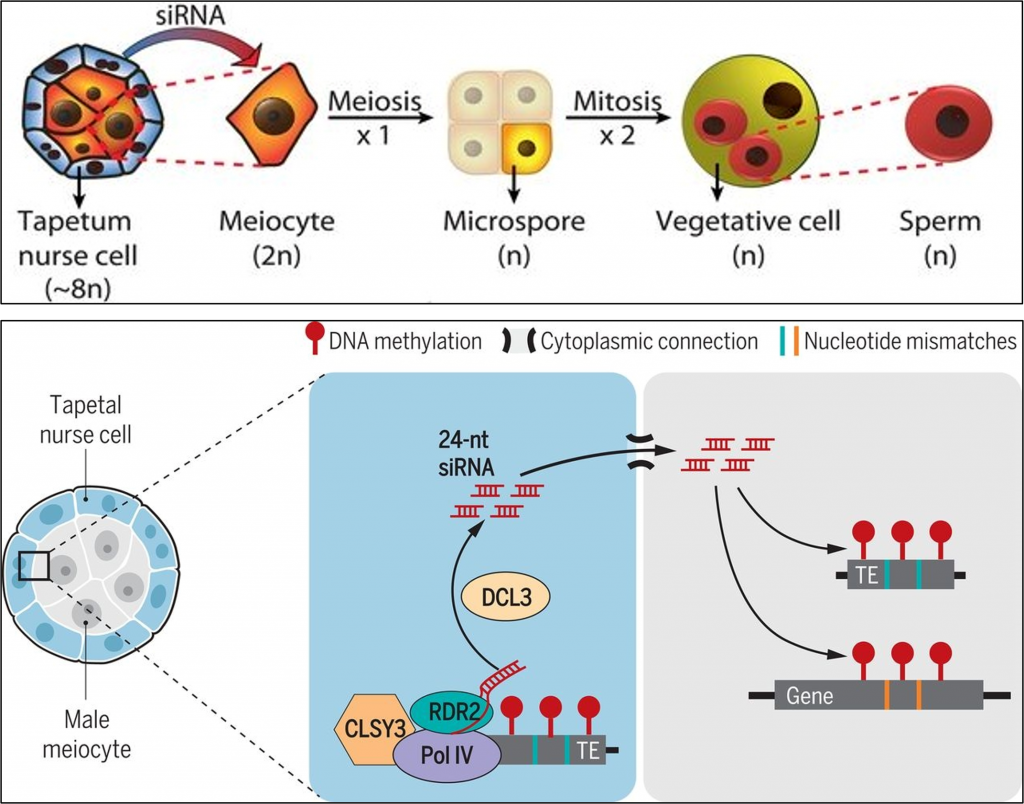 New mechanisms for the production and function of small RNAs continue to be discovered. Previous studies have shown a role for small RNAs in methylation reprogramming. Recently, Long et al. found that the epigenetic reprogramming that takes place in the male reproductive tissues also involves mobile small RNAs. They found that small RNAs are produced by RNA-dependent DNA polymerase in tapetal nurse cells of the anther – these cells are diploid, somatic cells, but they surround and support the development of the male meiocytes that will form the sperm cells. The meiocytes undergo extensive DNA methylation reprogramming, but they do not themselves produce the 24-nt siRNAs that mediate it. The authors found that these siRNA are produced in the nurse cells and move into the meiocytes through plasmodesmata. Interestingly, the siRNAs are transcribed in the nurse cells from transposons, which they target in these cells, whereas within the meiocytes they define paternal epigenetic inheritance by also targeting genes with imperfect sequence matches. This so-called trans-homologue methylation of protein-coding genes does not occur in the nurse cells, it is meiocyte-specific. (Summary by Mary Williams @PlantTeaching) Science 10.1126/science.abh0556 This article is also available as a preprint https://www.biorxiv.org/content/10.1101/2021.01.25.428150v1 See also commentary by Rebecca Mosher 10.1126/science.abj5020
New mechanisms for the production and function of small RNAs continue to be discovered. Previous studies have shown a role for small RNAs in methylation reprogramming. Recently, Long et al. found that the epigenetic reprogramming that takes place in the male reproductive tissues also involves mobile small RNAs. They found that small RNAs are produced by RNA-dependent DNA polymerase in tapetal nurse cells of the anther – these cells are diploid, somatic cells, but they surround and support the development of the male meiocytes that will form the sperm cells. The meiocytes undergo extensive DNA methylation reprogramming, but they do not themselves produce the 24-nt siRNAs that mediate it. The authors found that these siRNA are produced in the nurse cells and move into the meiocytes through plasmodesmata. Interestingly, the siRNAs are transcribed in the nurse cells from transposons, which they target in these cells, whereas within the meiocytes they define paternal epigenetic inheritance by also targeting genes with imperfect sequence matches. This so-called trans-homologue methylation of protein-coding genes does not occur in the nurse cells, it is meiocyte-specific. (Summary by Mary Williams @PlantTeaching) Science 10.1126/science.abh0556 This article is also available as a preprint https://www.biorxiv.org/content/10.1101/2021.01.25.428150v1 See also commentary by Rebecca Mosher 10.1126/science.abj5020
Interested in writing for this series? Plantae Fellows applications are open now, deadline Aug 20, 2021. https://plantae.org/fellowsapp/.


